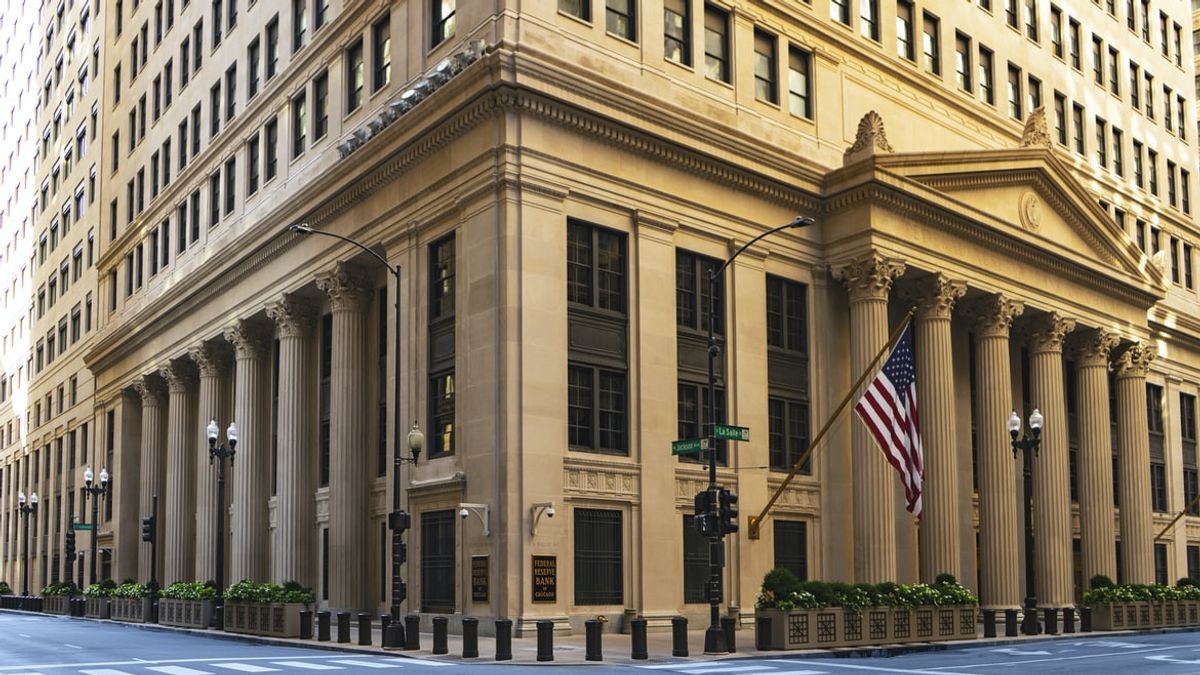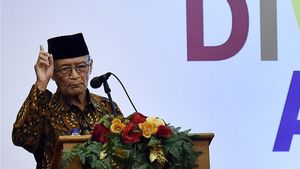JAKARTA - The US Federal Reserve opened its comments to the public after releasing a discussion paper on the pros and cons of a potential central bank digital currency.
In a publication released Thursday, January 19 titled “Money and Payments: The US Dollar in the Age of Digital Transformation”, the Fed said it would likely not be allowed to issue digital wallets or accounts capable of hosting the US central bank's digital currency, or CBDC, but rather leave such things to the private sector.
Additionally, the government agency said it would consider privacy concerns, whether CBDCs could be "transferred easily between customers of different intermediaries," and identity verification to combat money laundering and terrorism financing.
The paper adds that the US launching a CBDC could reduce the risk of a “proliferation of private digital money” while still encouraging innovation in the private sector, leveling the playing field between large and small companies that partly spend on themselves in digital currency may be a deterrent. Cross-border payments, the speed and efficiency of digital payments, and additional financial inclusion are potential benefits of digital dollars.
"CBDCs could fundamentally change the structure of the US financial system, changing the roles and responsibilities of the private sector and central banks," said the Fed newspaper, quoted by Cointelegraph. "Some have suggested that, if these new CBDCs are more attractive than existing forms of the US dollar, global use of the dollar could decline - and US CBDCs could help preserve the dollar's international role."
Regarding the risks of introducing digital dollars into the US and the world economy, the Fed said that CBDCs could effectively replace commercial bank money, raise prices for retail customers, and drive interest away from investing in “mutual funds, Treasury bills, and other short-term funds. -term instrument."
The paper also reiterates some of the concerns previously raised by officials about the stability of the current financial system, such as how the Fed might need to increase its reserves based on demand for digital currencies, and the striking balance between user privacy and the transparency required. to prevent fraud.
To that end, the Fed opened comments to the public for 120 days, through May 20 and asked concerned citizens to answer 22 questions regarding the possible rollout of digital dollar benefits, risks, design, and policy considerations.
“The Federal Reserve will only take further steps to develop a CBDC if research shows the benefits to households, businesses, and the economy as a whole outweigh the downside risks, and show that the CBDC is superior to alternative methods. "Furthermore, the Federal Reserve will only pursue CBDCs in the context of broad public and cross-governmental support," the Fed said in a statement.
First announced by Fed Chair Jerome Powell in May 2021 to be released last summer, publication of the CBDC discussion paper has been delayed several times. On Jan. 11 during his testimony to members of the Senate Banking Committee, Powell said that the paper would come in a matter of weeks after a delay due to "changes in monetary policy."
Despite a notice from the Fed that the discussion paper "does not support any policy outcome," Powell has previously suggested there is no rush in the US releasing the digital dollar even though other countries, including China, are continuing trials in various cities.
Athletes are expected to travel to China for the 2022 Winter Olympics in a few weeks when competitors and visitors will have the opportunity to use the country's digital yuan.
Wright noted that the high value of clean energy costs in an area appears to be pushing many crypto miners toward carbon-emitting fossil fuel energy sources for "at least in the near future."
US lawmakers seem to be paying great attention to crypto and blockchain when there is room for growth. Last December, the Senate Banking Committee held a hearing on stablecoins and how the US could participate in the race to adopt digital currencies.
Brooks also testified at a US Senate Committee hearing the same month about the role of digital assets in the future of finance.
“While digital tokens are a highly speculative and volatile asset class, they also represent the promise of a more open and widely shared internet,” said Gregory Zerzan, shareholder in business law firm Jordan Ramis.
"If policymakers take a cautious approach and encourage a pro-innovation environment, the rewards for consumers, investors, and all Americans are likely to be huge," he added.
The English, Chinese, Japanese, Arabic, and French versions are automatically generated by the AI. So there may still be inaccuracies in translating, please always see Indonesian as our main language. (system supported by DigitalSiber.id)










